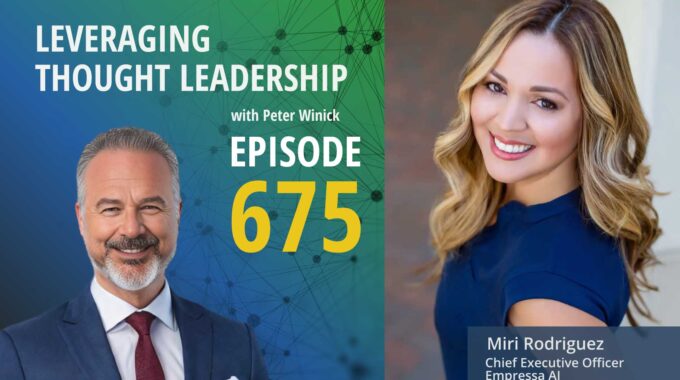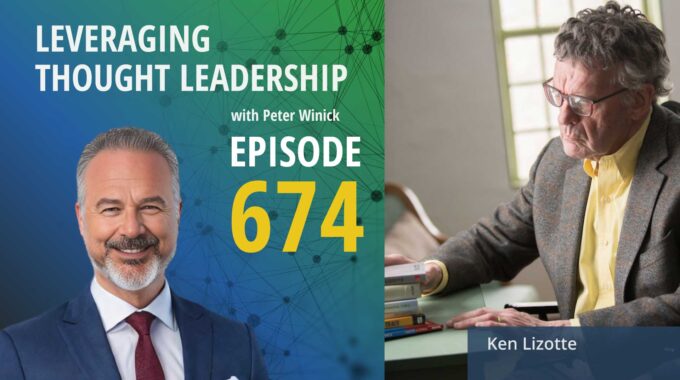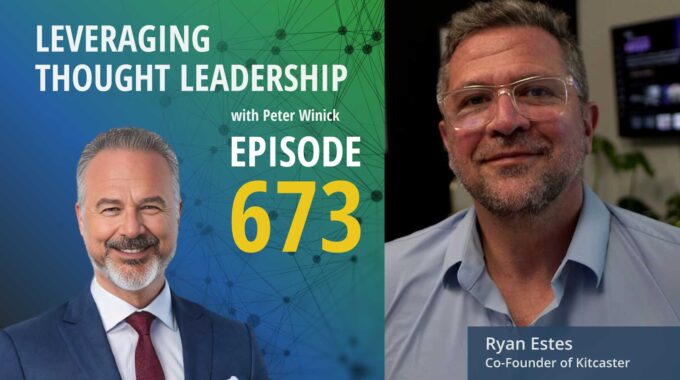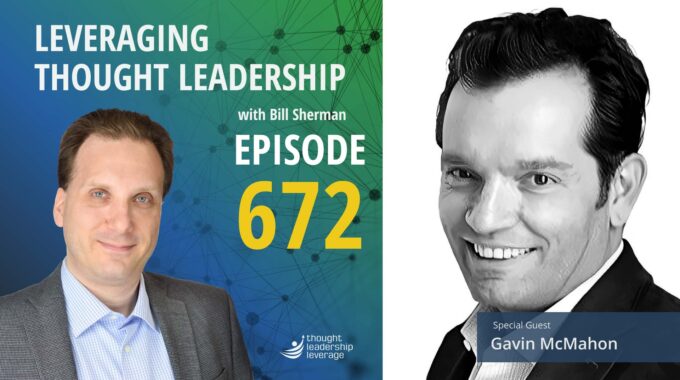Building Brand Love Through Storytelling This episode explores how storytelling can drive inclusion, purpose, and…
The Compelling Vision of an Entrepreneur | Jay Steinfeld
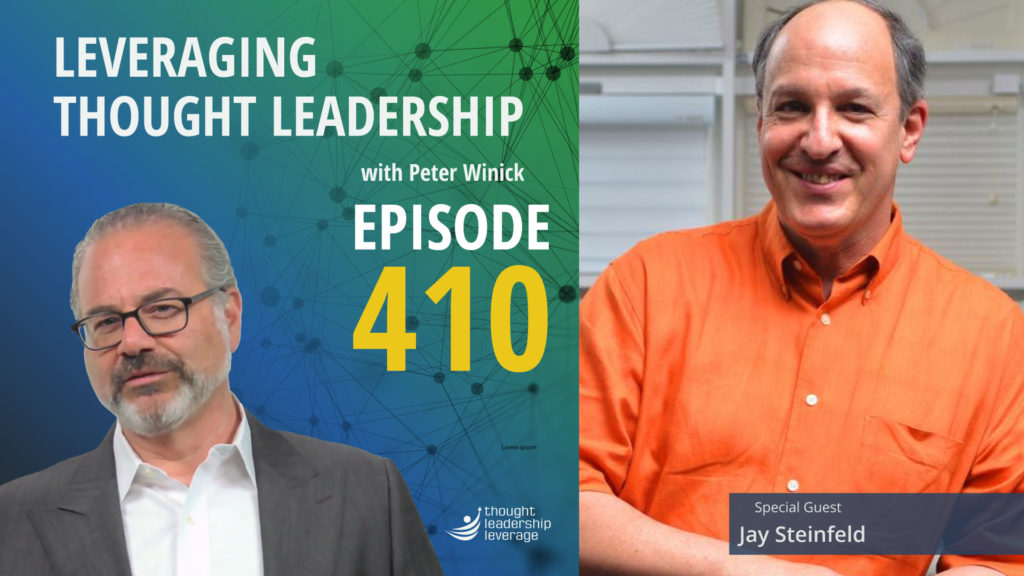
Creating a strong vision for your business and giving back to those who helped you reach success.
An interview with Jay Steinfeld about growing blinds.com, its sale, and the purpose of his new book.
What does a successful entrepreneur do for their second act?
Most entrepreneurs work hard to create a prosperous business, perhaps even with the intent of selling it and making an exit. For those who succeed, the next question is — now, what? Do you start a new business and begin the cycle again? And how do you give back to those who helped you reach success?
Today, I sit down with Jay Steinfeld, a world-renowned entrepreneur and early ecommerce adopter who took his small blinds business online in the early days of the internet, and the story of how blinds.com became the largest online blinds retailer in the world. He is also the author of Lead from the Core: The 4 Principles for Profit and Prosperity, which lays out the “Four Es” — a set of guiding principles that can help overcome any obstacle to your organization’s success.
Jay takes us back to 1993, and tells us how he experimented with online sales to supplement his brick-and-mortar store. While it was slow at first, the online channel grew so large they chose to sell the physical business and concentrate on online sales. In 2014, Jay sold blinds.com to Home Depot. Unlike many entrepreneurs, Jay chose to stay with Home Depot for 7 years, leading their online leadership team. Jay explains that his vision was not complete, and he seized upon the opportunity to see it through to the end. He moved his knowledge of online sales into adjacent categories, and found even greater success.
Now, Jay tells us about his book, Lead from the Core, which teaches the four 4’s E’s: Evolve, Experiment, Express, and Enjoy. He uses the book, and it’s lessons, to elevate others and help their businesses rise and grow – giving back to the communities and people who supported him in his initial ventures.
Our conversation is packed with powerful advice for entrepreneurs at any stage of business!
Three Key Takeaways:
- When you have a compelling vision for your entrepreneurial efforts, share it with others – it will improve everyone’s success, and move the world forward.
- Don’t be afraid to take chances and experiment with the way your business operates. You might discover new opportunities.
- A compelling vision and positive culture is crucial to retaining key employees through any transition. Be transparent with the ‘why’ as well as the ‘how,’ and you’ll see people lean in!
If you need a strategy to bring your thought leadership to market, Thought Leadership Leverage can assist you! Contact us for more information. In addition, we can help you implement marketing, research, and sales. Let us help you so you can devote yourself to what you do best.
Transcript
Peter Winick And welcome. Welcome. This is Peter Winick, the founder and CEO at Thought Leadership Leverage. And you’re joining us on the podcast today, which is Leveraging Thought Leadership. Today, my guest is Jay Steinfeld. Jay, let’s just check lots of boxes, world renowned entrepreneur. He was an early mover in the ecommerce world back in 1993. Some of you there don’t know your Internet history. That was like the Stone Age, the stone age of online and e-commerce. He sold the company to Home Depot. He was most sort of focused on building the culture and what that looked like inside of his company. He spent a lot of time on X-Prize, and his latest venture is his book, which is read from the Core The Four Principles for Profit and Prosperity. So I love the variety here in terms of coming from so many different facets of the world. But welcome. Great. Thanks for thanks for stopping by.
Jay Steinfield Thanks, Peter. Looking forward to it. But I do take some exception with Stone Age and we’ll.
Peter Winick Stone age from the internet.
Jay Steinfield Stone Age, Pioneer. All those adjectives are worrisome, actually.
Peter Winick Well, I’ll put it in context. These were the days when you would get no less than a dozen discs in the mail from AOL, which would be great coffee coasters. If any of you remember those. So that’s what I referred to as is or was an even 1.0 in 1993. I don’t know what it was.
Jay Steinfield No.
Peter Winick It was probably .001.
Jay Steinfield You didn’t even have your name as part of your email address. It was a number at CompuServe. It was like a six- or seven-digit number at CompuServe. And then it was big news when you all of a sudden you were allowed to actually designate the prefix to the email address.
Peter Winick Right? When you were able to choose that, that was it. So tell us a little bit about sort of the short version of your story as an entrepreneur, because you go from entrepreneur to Home Depot dude to culture and got a little all over the place in a cool way. But give us the short version of the story.
Jay Steinfield The short version is I’m an accountant who hates accounting, but went into accounting so that I could go into business. I did go into business and had a little store to sell blinds with my wife, and that was fine. I wasn’t making a whole lot of wealth, but I was making a decent living. I heard about the Internet in 1993 as an experiment. Decided to give it a shot. Amazon launched the year after that and they said, Hey, you can sell stuff online. And I thought, Hey, I’ve got a great idea, let’s sell blinds online. And everybody said it was stupid because people couldn’t see it. They couldn’t, they couldn’t. They had to measure it themselves. They had to install it themselves.
Peter Winick Now, this is before, before all these other specialty online retailers and you would think blinds like that’s not necessarily the easiest product. Like you said, it’s custom after measure. It comes in so many varieties, blah, blah, blah. Like, you know, plus the technology in those days was God awful.
Jay Steinfield Well, I had virtually no technology, but that’s okay. It didn’t matter because all I wanted to do was to give it a shot. Just try it. It was right. You know, you hear about MVP minimum viable product. My business was HVP, hardly viable product. It really was hard. It was it was bad. But we started and I’d have maybe a few sales a week and I was actually handling the calls from my car in between appointments of my day job, and it just built up to. Eventually I was making as much money online as it was in my store and said, I’m going to chuck the store. Sold it went full time online in 2001 and. 13 years later sold it to Home Depot. We were the number one online retailer of blinds in the world. Since then, I stayed on for seven years with Home Depot online leadership team as the CEO of blinds.com. And now I’m on various boards and I teach entrepreneurship at Rice and the business school.
Peter Winick Got it. Okay. So I want to pause on one piece of that story that you sort of fast forwarded through a bit that I think is not typical. So entrepreneur build the business, finds an opportunity, figures it out right, sells it to Home Depot. So that’s somewhat unusual selling, you know, a little guy selling to the big company. But then you stayed there seven years. Like that’s if any of you know, you know, have been through an exit. It’s normally a year, 18 months to two years. And it’s very, very rare that people can make it through that tenure, let alone I doubt you had a seven year buyout or something. Like what was it about Home Depot and blinds that come in the time and why why would you stay so long?
Jay Steinfield It’s a good question. I had this vision before Home Depot that we were not just going to be the best at selling blinds online, but that we were selling complex, customizable products, hard to buy products. We were building technology that we could then move into adjacent product categories that were hard to buy, such as decks, vanities.
Peter Winick So certain of other categories, any posing right, and then dozens of other categories.
Jay Steinfield So all of a sudden they’ve got supply chain, they’ve got merchants that customers. And therefore, since I had never actually reached that vision myself, this was the opportunity to do it. And it was a fun thing because I had to not only push through the bureaucracy and politics, but here we were. We built this technology that was being integrated into the card-to-card integration in over 2000 stores, 500,000 people, millions, tens of millions of customers. We were doing significant things and the people were now doing the things that we had always set out to do. So why would you not do that? I mean, I didn’t need the money, right. Which actually made it easier because then I could actually speak up and say exactly what I wanted to do, which I believe was in the best long-term interest of Home Depot and blinds.com, and everybody who was with me.
Peter Winick So I guess I guess what I was going to say is a lot of entrepreneurs. So I love the opportunity side because what better platform than Home Depot to expand your technology and the resource they have and reach region the scale and that many places that have more than they do relative to that but a lot of entrepreneurs just don’t they’re you know we’re oddballs as entrepreneurs. We don’t always fit in to the corporate side of the world. So you obviously had to be a fit, but you were a rebel, you know, maybe lowercase. Aren’t that because you had the you didn’t need the job, unlike most of the leadership team, that kind of probably needs the job of the experience and exit. So that’s really interesting to me. So you must have enjoyed it intrinsically and they must have, you know, obviously it worked so well.
Jay Steinfield I did. And I loved it because it was an opportunity to achieve my vision and. Right, that’s what I do. Entrepreneurs do. They have a vision and they want to accomplish it. Which doesn’t mean if your goal is to make money, that that’s a bad thing. Yeah, I got to make money. But first it was to actually do consequential work and to be autonomous in that process. So then the next question, I think what you’re saying, Peter, is how did I last how did I stay? Right. In an organization that is bureaucratic, just by necessity, it was because that vision was so compelling. People say you need to have a compelling vision. Yeah. Because that will help you get through the adversity and the headwinds. Well, that’s what happened. The vision was so compelling that all of us together had set out to do this, that after the acquisition, we didn’t lose any key people at all. For three years. Everybody wanted to stay on. And now when I did, when the CFO left, right before I was was leaving, which wasn’t until May 2020, I asked her, So how long did you think I was going to stay? And we thought you were going to hate us and leave in 90 days.
Peter Winick Right? Exactly.
Jay Steinfield Because that’s what normally happens.
Peter Winick Exactly. So I went.
Jay Steinfield It was just too good to leave.
Peter Winick If you’re enjoying this episode of Leveraging Thought Leadership, please make sure to subscribe. If you’d like to help spread the word about our podcast, please leave us a review and share it with your friends. We’re available on Apple Podcasts and on all major listening apps as well as at ThoughtLeadershipLeverage.com forward slash podcasts.
Peter Winick So I want to pivot to the. The current chapter or, well, there’s many chapters, but the next chapter would be Jay the thought leader. Right. So, Jay the account that doesn’t want to be an account. Jay The entrepreneur. Jay The successful corporate business executive. Now, all of a sudden you say, okay, I don’t have enough going on. I’m going, I’m going to dive into fall leadership. So what was. Where did that come from? And, you know, sort of segue that into the book and, sort of, where we are today?
Jay Steinfield Well, I never actually thought of nor do I now think of myself as a thought leader.
Peter Winick Okay.
Jay Steinfield I wanted to give back. I wanted to give back to the organizations that helped me build myself in my company, peer to peer groups like visited. I wanted to give back to entrepreneurs, which is why I went into teaching. Mm hmm. As a result of that, the things that I am doing are thought leadership types of things. Sure, I didn’t go in specifically to be a thought leader because I’m on board.
Peter Winick So let me change the question to what drew you into those thought leadership activities? So whether you want to call yourself a thought leader or not. Okay, I got it. But you were doing things. You’re teaching at a university. You’re writing a book. What was the draw there? I’m in some money. Right.
Jay Steinfield So what drew the back is to was to give back. Once you get to a certain stage, what else do you do? There’s the only thing you can do is give back. I mean, yes, you can start another company, but that’s a lot of work. I was not going to do that again, but I don’t mind being on board part time where I’m helping entrepreneurs and coaching them and mentoring and helping students become better than what they ever believe possible. That’s a fun thing to do. And for myself in the book, Lead from the Core, there’s four principles in there about evolving continuously. Well, all of these activities we’re talking about helps me evolve and distinguish something. The core values of our company were my core values, my personal core, which extended to the company. We didn’t set out to say our core values should be and let’s have an offsite and figure out what they should do well, but stay.
Peter Winick There a minute. So, I think that is for entrepreneurs. Is that the culture, the core values, many things are the extension of the founder and their personality and their belief system and all that sort of stuff. But those don’t always scale, right? And those don’t always stay in place as you reach certain levels of scale. But you’re saying you didn’t you were enabled. Yeah. So, mine are.
Jay Steinfield All about scaling. It’s only about scaling it. It’s about because my fear was I wasn’t going to be able to do all the things that I wanted to do. Before I died, my fear was not being able to achieve and finding out what I could become. With a limited amount of time. That’s so I wanted to see how fast I could actually do that and how what could I involve to become? How could I experiment with the purpose of becoming better than I ever believe possible? How can I speak up and get data from all the people around me? All these things are the three. Those are the first three principles evolve, experiment, express, and then the fourth one. Enjoy. Have fun. Because all these things are fun when you’re working really hard and you’re accomplishing things that people said were impossible and you’re developing teams and people are feeling significant, you’re able to do significant work. So if that’s a thought leader by helping people understand what they can become. Mhm. Well yeah I think that’s pretty cool because don’t you want a legacy. Doesn’t everybody feel like they wanted to make a difference. Well the more I can leverage out through my book lead from the core or through teaching or through boards and mentoring. Right. Those that’s how I leverage my what I’ve done over the entire trajectory of my career starting. And I do an idea to building a business of consequence, selling it. And now I’m not retired. I’m way wired.
Peter Winick Exactly. And I would imagine that that’s very attractive to talented folks that want to work with you and stay on the team. Because I imagine there’s probably a subset of people in the universe that are passionate about blinds and hardware and all those other things. I would imagine also there’s probably a larger population of people that would want to be at a place where there are clear principles stated and they get to live them and practice them every day.
Jay Steinfield No doubt. First of all, I am not passionate about blind, right? I didn’t go into the blinds business because I wanted to beautify the world with blinds and provide privacy and insulation and security.
Peter Winick So this is not a chicken in every pot. A blind on every window was not what we were doing at five years old and.
Jay Steinfield Didn’t matter what the business was right. And it didn’t matter for us. Our core values apply to personally becoming better than what they ever we ever believed possible. That’s that was actually the purpose of blind stock to help people become better than they ever believe possible. And when you do that, you’re helping yourselves get better. Everybody is helping each other get better. We’re helping our customers get better. Our service suppliers, everybody, our community, our community is an integral part. So when you do that, when you’re thinking about improving yourself and improving everyone around you, you have this business that automatically gets better. It’s autonomous, excellent. Everything just gets better. It’s fun. You’re not yelling at people. You’re allowing you to make mistakes.
Peter Winick Right?
Jay Steinfield Everybody is feeling like they’re their authentic selves. And it’s a beautiful.
Peter Winick Thing to watch.
Jay Steinfield You had 8% turnover.
Peter Winick That’s nothing. And that doesn’t.
Jay Steinfield Leave when they’re out, when they’re being fairly paid and everybody is feeling significant and everybody is helping each other in a supportive, emotional and technical way through personal development of listening through, asking questions about not only what we want to do, but what do they want to do.
Peter Winick So that’s fantastic.
Jay Steinfield That’s what I’m trying to teach. When you talk about thought leadership and that’s what this book is really about. Yes. It’s how to build a business out of nothing, into something consequential. But it’s really how to entrepreneurially help yourself become a little bit more disruptive and think how you can become better.
Peter Winick So I want to thank you for that. I just want to wrap we’ve got 2 to 3 minutes left here with your thoughts, because I see a lot of what you’re doing as you’re at the legacy phase now. Right. This isn’t a startup and you’re looking to make $1,000,000,000 change the world or whatever. But there’s something almost evangelical and a nonreligious perspective that you want to unleash the power of this ideas, these ideas on as many people as you can through teaching, through the book, through that. Is it coming with that? If a if I’m on the right track and then B, if so, what it’s like to be because I work with a lot of folks that aspire to get to a legacy phase in life.
Jay Steinfield That is precisely what I was trying to explain. That is exactly what I want to do. And that’s what the book is about. And that’s what all of these seven boards are. And why I’m teaching it is not for the money. It is not for the money. Now I want to be adequately compensated if I’m spending a lot. Sure, sure. I can just give it away.
Peter Winick No, of course not.
Jay Steinfield But I do a lot of podcasts that I’m not getting paid for that. And if I sell some books. Right, I don’t sell books. Great. So there’s something really fun about being it in life where you can be with your grandkids and your kids and you’re just giving it is it gives you this equanimity that is unlike anything else. You don’t strive for anything, and you’re becoming better every day and you’re helping others become better. It’s actually my definition of success.
Peter Winick I mean, it sounds like, you know, you’re not coming home thinking, wow, I had a real tough day at work today. Yeah.
Jay Steinfield No, in fact, it’s it. I feel like I’m successful every day.
Peter Winick That’s phenomenal day.
Jay Steinfield Because what’s happening is, by definition of success is not about attaining anything. It’s about evolving and getting a little bit better. It’s about being in the process of getting.
Peter Winick Better.
Jay Steinfield Or helping somebody else get better. And that’s something you can do throughout the day. After this, after this interview podcast, I’ll think to myself, What could I have done better? And I will get better. And that will mean successful. Something to get better. If I help my wife with something or anything, that’s success. You can be successful multiple times during the day. Yes.
Peter Winick And that’s a little tiny bit. Yeah, that’s it.
Jay Steinfield Not enjoy that. How is that not enjoying the ride. And that’s the whole philosophy in the book lead from the core that I’m trying to help people understand. You just need to think a little bit differently, a little more expansively, a little more generously, and then you can bring respect and humanity back into the workforce and into your life. It’s just such a great, more easier way to be.
Peter Winick Yeah. Know a great message and I appreciate your time and sharing the story and I think we’ll have a lot of listeners out there being somewhat envious of their days relative to what your days sound like. So, I hope that’s a good day. That’s a good motivator.
Jay Steinfield Well, they can do it, too. It’s something that’s a lot that’s exclusive to me. Anybody can do it.
Peter Winick Love it. Thanks so much.
Jay Steinfield Thank you, Peter.
Peter Winick To learn more about Thought Leadership Leverage, please visit our website at ThoughtLeadershipLeverage.com to reach me directly. Feel free to email me at Peter at ThoughtLeadershipLeverage.com and please subscribe to Leveraging Thought Leadership on iTunes or your favorite podcast app to get your weekly episode automatically.



